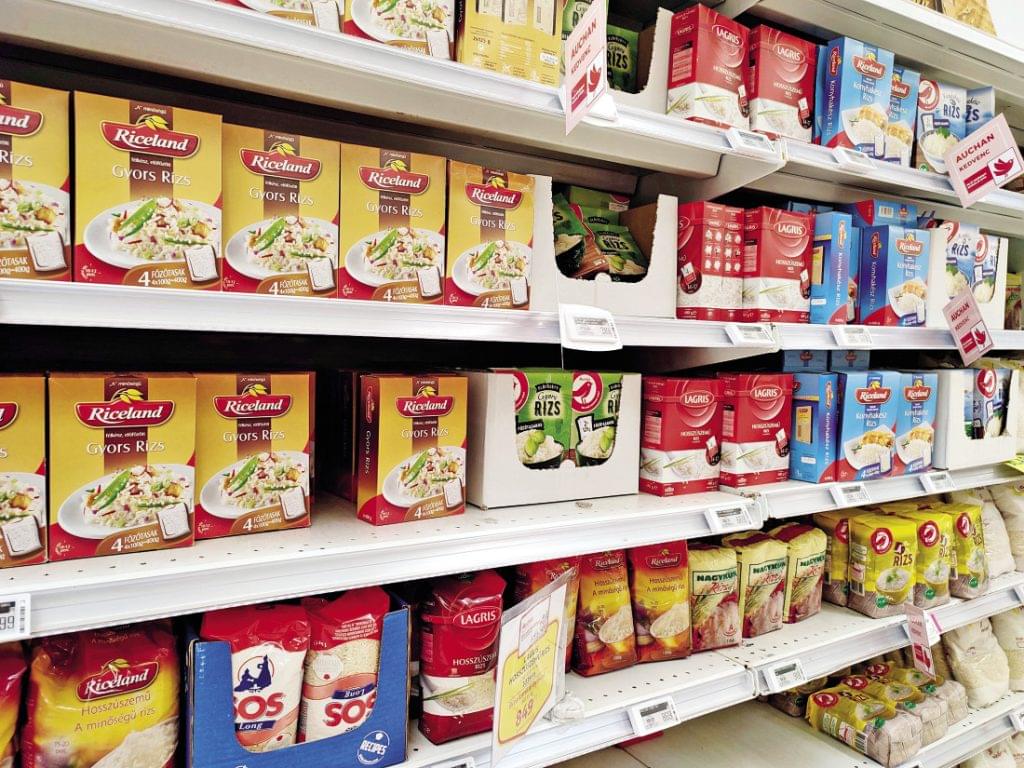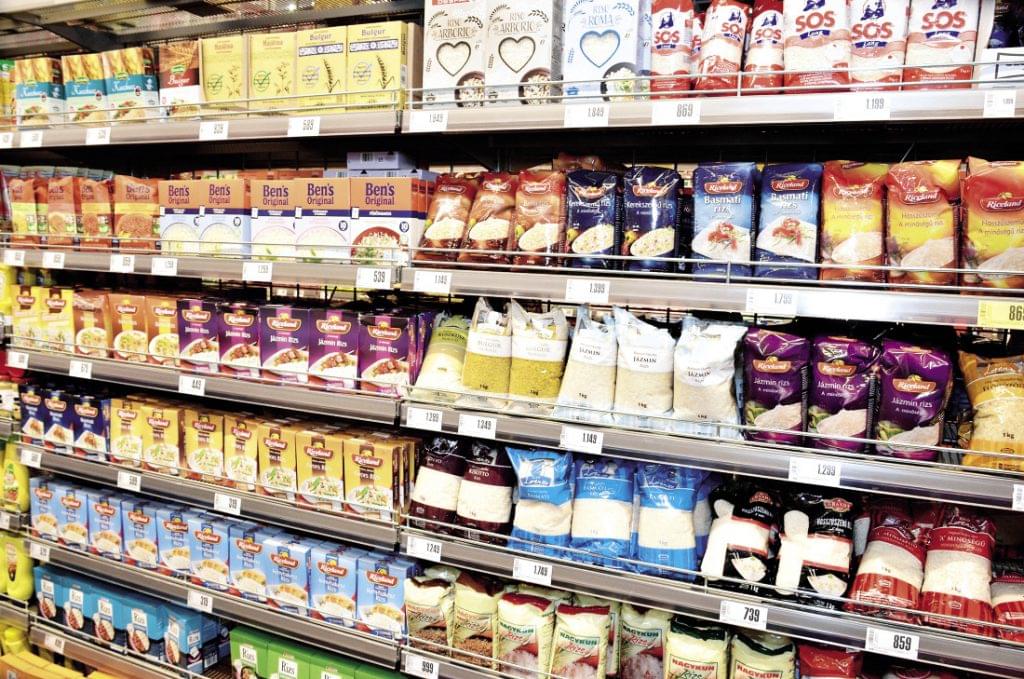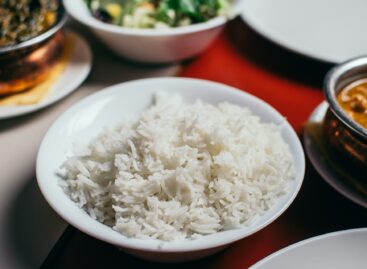More colourful rice category
Demand for rice soared during the COVID pandemic, as this food is relatively cheap and it has a long shelf life.

Dr. Imre Tímár
managing director
Tanner Trade
Dr Imre Tímár, managing director of Tanner Trade Kft.: “Rice consumption is growing all over the world. This is also true for Hungary, where per capita consumption had been 4.1kg back in 2014, but it was already 6.3kg in 2016. Our sales jumped during the pandemic, but returned to the pre-COVID level afterwards.”
International exposure
A few months ago prices started to rise in the rice category too, primarily due to the growing energy and fertiliser prices, extreme weather and the Russia-Ukraine war. Since 80% of the rice sold in Hungary is imported, elevating transportation costs – together with the weakening of the forint – also influence prices. Tanner Trade Kft.’s managing director believes that higher prices will drive rice buyers towards cheaper products and smaller formats. He hopes that this trend will only be transitional. At Tanner Trade Kft. innovation work focuses on introducing eco-friendly product packaging designs, in partnership with suppliers.

The prices of private label products has gained upon thos of branded products – the price level mainly depends on the suppliers’ access to resource
Private labels don’t have a price advantage anymore

Mihály Bencs
managing director
Riceland-Magyarország
Mihály Bencs, managing director of Riceland-Magyarország Kft.: “In the last few years demand for jasmine and basmati rice increased very much, making Hungarian rice consumption more colourful. Unfortunately the energy crisis, soaring production costs and the war-induced price increase all make shoppers buy cheaper products. As private label rice is made from the same raw material, these products are also becoming more expensive – some of them now cost more than certain branded products. Last year we entered the organic rice market with 4 products, and launched 3 new polenta products: organic pre-cooked polenta, pre-cooked polenta and wholemeal pre-cooked polenta; all of them are marketed in protective atmosphere packaging.”
Growing demand for round rice
According to Marianna Hoduláné Rusznyák, head of office at Medist Hungary Kft., the recession has diversified rice consumption. “Rice is still relatively cheap if we consider its per portion price, even in the case of the most exclusive varieties. Aromatic exotic rice consumption is gaining ground, to the detriment of classic cereals. In general we can say that demand is on the rise for round rice in Europe, thanks to the popularity of sushi” – the head of office added. She believes that there is still great growth potential in aromatic rice. There is also strengthening demand for organic rice in both the classic and the exotic segments.

Recently, demand for basmati rice and jasmine rice has significantly increased
New generation with new needs
Fruzsina Valentinyi, managing director of Valoryz Production Kft. opines that the majority of Hungarian consumers decide which rice to buy looking at its price only, but there is a new generation which is willing to pay more for quality rice and rice-based products. “Consumer needs are shaped more and more by the busy weekdays. Shoppers want small products that are easy to open and close. We are present in the market with our Ricely rice-based fruit drinks. Plan is to launch two new flavour combinations, but next year we also intend to put new rice-based products on the market” – told Ms Valentinyi. //
Rice time
According to the GfK Household Panel, 87% of Hungarian households buys rice in a 12-month period, on average 6 times a year.


Guest writer:
András Kuntner
business development
manager/retail
GfK
This year rice sales grew by 7%, while potato sales dropped 6%. Between November 2021 and September 2022, the average household spent HUF 3,937 on rice, paying HUF 595 for one kilogram. Type A and B rice realise 50% of sales, but the category’s share dropped 5 percentage points in comparison with last year.
Recently private label products have managed to increase their formerly 64% volume share to 68% percent, improving their performance by 15%. Households purchased 39% of rice in discount supermarkets. It is noteworthy that 52% of high quality, special rice products (e.g. basmati, jasmine, risotto, etc.) is bought at discounters. //
Did you know?
Rice, an annual grass belongs to the genus Oryza. Rice is tasty and healthy staple food, which is rich in nutrients. It was brought to Hungary during the country’s occupation by the Ottoman Empire. //
This article is available for reading in Trade magazin 2022.12-01.
Related news
Rice: more than a side dish – an ancient staple with many shelf functions
🎧 Hallgasd a cikket: Lejátszás Szünet Folytatás Leállítás Nyelv: Auto…
Read more >Mars to close factory in Belgium
🎧 Hallgasd a cikket: Lejátszás Szünet Folytatás Leállítás Nyelv: Auto…
Read more >Related news
NAK President: more than 120 thousand people signed the agricultural petition in one month
🎧 Hallgasd a cikket: Lejátszás Szünet Folytatás Leállítás Nyelv: Auto…
Read more >The government is supporting dairy farmers with a new measure
🎧 Hallgasd a cikket: Lejátszás Szünet Folytatás Leállítás Nyelv: Auto…
Read more >









